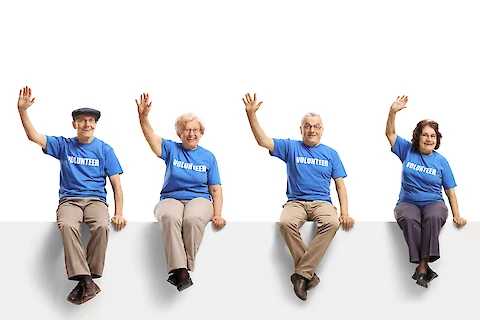
5 Psychological Benefits of Giving and Volunteering Among Seniors
It's no secret that volunteering can be a great way to give back to your community. But did you know that it can also positively affect your mental health? Research has found that seniors who volunteer or give regularly experience an array of psychological benefits, including improved mood, increased self-confidence, and even reduced risk of depression. Let's take a closer look at the top five psychological benefits of giving and volunteering amongst seniors.
Psychological Benefits of Giving and Volunteering
1. Improved Mood
Giving back to others has been scientifically proven to improve one's mood. Studies show that those who volunteer experience a boost in their overall happiness level. This feeling is also known as the 'helper's high,' which can serve as an effective mood booster and is a result of the end endorphins released when giving back.
2. Increased Self-Confidence
In addition to making you feel more positive, volunteering can also help boost your confidence and self--esteem. Making a difference in someone else's life can give you a sense of purpose and accomplishment. This is likely because volunteers feel more connected with the world around them and see themselves as part of something bigger than themselves.
This increased confidence can carry over into other areas of life, allowing seniors to take on new challenges with greater ease than before.
3. Reduced Risk of Depression
Depression is common among seniors, but research suggests that those who participate in acts of giving may be less likely to suffer from the condition. One study found that regular participation in charitable activities was associated with significantly lower levels of depressive symptoms among seniors compared to those who did not engage in any type of giving behavior whatsoever.
4. A Sense of Connection to the Community
Feeling connected with others is essential for overall well-being. Yet, many older adults struggle with feelings of isolation and loneliness due to decreased mobility or other factors associated with aging. Volunteering provides an opportunity for connection by engaging individuals in meaningful activities within their local communities—activities that often provide much-needed help and services while simultaneously boosting morale among all involved parties.
5. Improved Cognitive Functioning
Research suggests that giving or volunteering provides cognitive benefits as well—specifically when it comes to working memory, problem-solving skills, and processing speed (all important components for healthy aging). Seniors who regularly engage in altruistic behaviors tend to perform better on cognitive tests than those who don't participate in such activities.
Conclusion
It's clear from these findings that there are numerous psychological benefits of giving and volunteering amongst seniors – from improved moods and self-confidence levels to decreased risk of depression and improved cognitive functioning. This, in turn, makes it an excellent way for older adults to stay engaged and active during later life stages. If you are a senior looking for ways to give back within your local community, Senior Helpers Salem OR offers many volunteering opportunities or donating money to valuable causes throughout Salem, Dallas, Keizer, Albany, and Corvallis. Contact us today if you would like more information on how you can get involved!